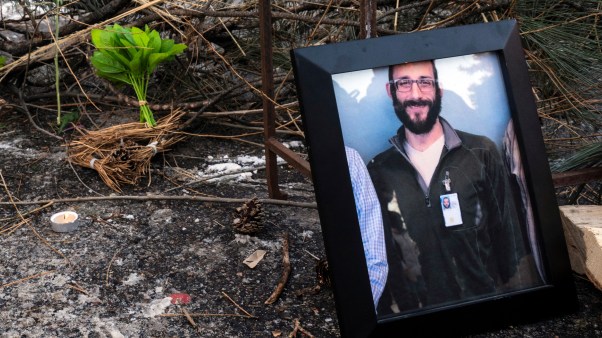As a college student, I participated in the American Studies Program in Washington, D.C. A professor said something that changed my life: “God has not just called you to himself through salvation in Christ. He has also called you to a specific role in his kingdom, and only when you discover what the Puritans called the “particular call” will you experience true meaning, purpose, and satisfaction in the Christian life.”
I’d never heard that before. Newly zealous for God, I desperately wanted my life to count. A political studies major with a business minor, I was struggling to understand why God would care about politics or business. I debated whether to switch my major to something more “spiritual” like biblical studies.
Wanting to know more about “particular calling,” I asked my professor to suggest a book on calling. He could not think of even one. I decided to do my own research. What I discovered baffled me. The doctrine of calling is one of the most significant teachings the Puritans handed down to us, one that shaped Western culture, and yet almost nothing had been written on it for hundreds of years. All I found were a handful of pages copied from the microfiche of two historic works, one from Martin Luther and another from a Puritan Divine. I treasured these few pages for years.
Years after my initial research, I was thrilled when Os Guinness wrote two outstanding books on calling, retrieving this explosive doctrine for our generation. In The Call, he writes, “Calling is the truth that God calls us to himself so decisively that everything we are, everything we do, and everything we have is invested with a special devotion and dynamism lived out as a response to his summons and service.”
Guinness distinguishes two kinds of calling. The general call, as the Puritans referred to it, is God calling us to himself. We are summoned by God, saved by grace through faith in Christ. Our hearts and minds are changed; our wills begin to be refashioned. The only reasonable response to this call is gratitude, which leads to obedience in every area of life.
“Everything we are, everything we do, and everything we have,” as Guinness says, is now dedicated to God with “a special devotion and dynamism.” Nicholas Wolterstorff describes it as “obedience motivated by gratitude and expressed in vocation.” This is the particular call.
When properly understood, our particular calling energizes us and provides meaning and purpose to sustain us through the difficulties of our labor.
Don’t simply praise God that the math home work is done. We worship in the work itself.
I wish I could say that after reading Os’s book, I had it all figured out. But it has taken years to discern God’s particular calling on my life. Along the way I learned three important lessons:
1. All callings are spiritual, not just the calling to be a pastor. The Reformers saw all of life as sacred, though fallen, and this meant that God had not given up on creation and neither should we. So whatever profession God has called us to, we can serve him and be part of what God is doing to redeem and transform the world.
2. God has called each of us to use our time and natural talents to “seek the welfare of the city” (Jer. 29). All of us, not just pastors, are shalom makers, bringing health, wholeness, and transformation to every area of our lives—family, relationships, work, school, the civic realm, and our recreation. We are all to be “missional.”
3. Our callings are connected to our worship. As Charlie Drew says, we don’t “simply praise God that the math homework is done, or that we got a good grade in math. We worship in the work itself.” This is true not just for math students but for every calling and area of life. What brings meaning to the everyday stuff of life is realizing that as I work I am worshiping God—living gratefully, practicing his presence, praying without ceasing, enjoying the task at hand, and giving him glory.
My calling is not for myself and my own satisfaction, though it often brings me tremendous joy. Rather, my calling is for God and his glory. But when it is offered to him in worship each day, it also engenders marvelous meaning and purpose.
if I needed to know this as a college student two decades ago, I need it even more today.
Jim Belcher is author of Deep Church. He is the founding and former lead pastor of Redeemer Presbyterian Church in Newport Beach, California.
Copyright © 2010 by the author or Christianity Today/Leadership Journal.Click here for reprint information on Leadership Journal.









